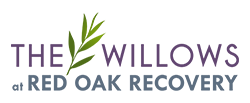Exercise and Addiction Therapy: How They Relate
Recovering from an addiction is not always as simple as staying sober. Part of the recovery process includes being physically fit. An exercise program helps improve the circulatory system. Exercise and addiction recovery go hand in hand in many ways. A clean body assists in developing a clear mind. Even a vigorous daily walking routine can do wonders. It gives you time alone with your thoughts while stimulating your heart. This is especially true in any facility that is specifically designed with women in mind. The counseling professionals at The Willows at Red Oak understand this relationship of mind and body. We can craft a plan that meets the needs of any client.
How Recreation Therapy Affects Recovery
All people in recovery are naturally wary. Most clients tend to be private and guarded. Exercise is a key first step in any treatment program. Being involved in an exercise program helps you let your guard down. It enables you to work off some of your restless energy. This leads to a more open discussion. The most important element of recovery is honest communication. You may have suppressed feelings for many years while you were using. We often find that a lack of physical exercise contributed to emotional suppression in many clients. Loosening up physically helps you become more comfortable mentally too.
What Your Exercise and Addiction Recovery Program Can Include
We evaluate all client’s history and physical limitations before developing an exercise therapy program for them. We assure you we don’t craft a relegated structure of routine activities. A recreation and exercise plan can include experimental therapy. It might involve doing new things like hiking, gardening, or even horseback riding. A crucial part of our treatment process consists of enjoying the grounds and facility. They are arguably just as important as the clinical evaluation and discussion periods. A recreational therapy program gives you additional activities you can do in addition to talking to therapists. When you exercise, you’ll get some personal thinking time. Also, you could learn to interact with others via group exercise.
Interacting With the Community
Building relationships while in recovery is a significant part of therapy because recovery is a community event in many respects. Directly talking with therapists, one on one isn’t always enough to reach full recovery. Group therapy comes with many benefits. Counseling sessions are typically scheduled throughout the week. Then, the recreation program gives you a way to unwind from the counseling sessions. Substance abuse cycles have a way of causing people to lose consideration of others. Interacting with the group can help you develop a clearer perspective on yourself. This could lead to a more honest personal evaluation. Rigorous honesty is vital to effective recovery.
Unconventional Recreation
The Willows at Red Oak doesn’t limit exercise to specific activities. Service work and trauma therapy are part of an exercise program. Other alternative offerings include acupuncture, meditation, yoga sessions, and relationship-building activities. If an activity can help in the recovery and relaxation process, our therapy professionals are willing to provide it. The primary purpose of treatment is to learn successful living habits. Everyone does not find it via the same method.
The atmosphere at The Willows at Red Oak is peaceful and quiet. This provides you with a great background to relearn how to live without the behavior patterns that disrupt your life. Located on an old horse farm, we stress mental health and healing. While the program is a non-visitation, long-term program of 90 days or more, we understand that maintaining individual family relationships is essential to a successful recovery program after leaving. This is why we also offer an aftercare program for those very serious about maintaining their sobriety. We feel we have the best recreational therapy program in North Carolina. Plus, we have structured clinical sessions at least three times per week to offer more than 25 hours of clinical treatment.
Contact us today at 855.773.0614 to learn more about our treatment options.

